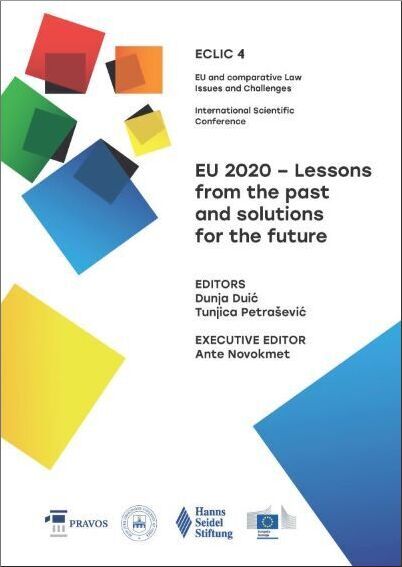REMEDIES FOR THE TRIAL IN ABSENTIA - THE RECENT ROMANIAN EXPERIENCES
DOI:
https://doi.org/10.25234/eclic/11920Abstract
Accepting the fact that a person can be tried without being personally notified is one of the great concessions that the right to a fair proceeding makes to the public interest and the effectiveness of criminal trial. However, the remedy for such a possibility must be itself effective and it is one of the real challenges of the EU states. This is because sometimes it is very difficult to determine, objectively, whether a person has really been out of criminal proceedings or he is just letting it to be believed. So, we are talking about a series of rights and interests in conflict. As we stated, the celerity of the proceedings, finding the truth, the security of the final decisions, the defense and the fair trial. All these problems are encountered when the issue of the judgment in absentia and its remedies are raised. So, the central goal of our paper is outlining the concept of contumacy and observing the Romanian legal order specificities. In Romanian procedural system, the trial can be held in absentia, if the accused is not found at the legal or known residence. The prosecutor or the judge must perform reasonable efforts to find the offender, by carrying out investigations in the labor registers, or at the detention places. However, the person still can not be located by the authorities. The summons are communicated, and the procedure is legal even they are not personally received. As a rule, in Romania, the importance of personal participation in criminal trials is very high. If the defendant is absent and found guilty, the judge has very less posibilities of sentencing without deprivation. The person identified by the police in any state is arrested and the question of his extradition is raised. In which cases Romanian system enables the reopening of the proceedings? We will try to identify the effectiveness of this remedy in the pre-trial stage, in accordance with those retained by the ECHR (well-known Sejdovic. v. Italy, Colozza v. Italy) but also by the recently CJUE case-law (e.g. Pawel Dworzecki ). We will identify the conditions provided by the Romanian law regarding, in particular, the personal summoning. We also intend to analyze, briefly, the conclusions of a recent decision of the Romanian Constitutional Court, which requires that, after admitting the request to retrial, the file should resume from the moment of challenging the lawfulness of the investigation, which, in the Romanian system, is prior to the trial of the case.
Downloads
Published
How to Cite
Issue
Section
License
Copyright (c) 2020 Adrian Stan

This work is licensed under a Creative Commons Attribution-NonCommercial 4.0 International License.
Authors retain the copyright on the papers published in the Journal, but grant the right of first publication to the Journal. Papers accepted for publication or already published in ECLIC of the Faculty of Law in Osijek may be published by the author(s) in other publications only with proper notice of its previous publication in ECLIC.


